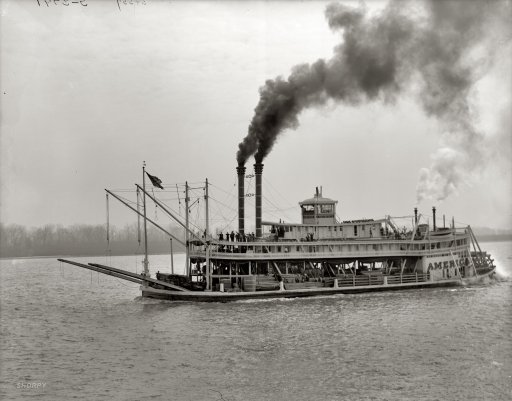 My mother died from cancer eighteen years ago at the age of 51. I remember the last time I was with her alive. It was Mother’s Day 1992. We had driven from Kansas City back home to Pueblo, Colorado to see her and my dad. She was very sick; yellow from the jaundice because her liver and kidneys were shutting down; almost too weak to get out of bed. We sat with her, read scripture together, sang hymns, and read her Mother’s Day cards to her. She was suffering and on pain medication. But on that day she was vibrant. She was positive. She smiled and radiated the love of God to all of us in the room with her.
My mother died from cancer eighteen years ago at the age of 51. I remember the last time I was with her alive. It was Mother’s Day 1992. We had driven from Kansas City back home to Pueblo, Colorado to see her and my dad. She was very sick; yellow from the jaundice because her liver and kidneys were shutting down; almost too weak to get out of bed. We sat with her, read scripture together, sang hymns, and read her Mother’s Day cards to her. She was suffering and on pain medication. But on that day she was vibrant. She was positive. She smiled and radiated the love of God to all of us in the room with her.Thinking about her and Psalm 119:74 has me asking myself: Are other believers encouraged when they see me? Do I have a positive, vibrant testimony? Do I have the type of smile and countenance that reflects patient confidence in the Lord?
Psalm 119:73-80 reflects that kind of patient confidence in God in spite of afflictions. Yesterday I told the first reason to have confidence in God and His word: 1. My Creator a Plan for My Life (Psalm 119:73).
The second reason we can pray with confidence is:
2. My God Can Still Work Through Me (74).
74 Those who fear You will be glad when they see me, Because I have hoped in Your word.
The writer of Psalm 119 is not free from affliction, but he responds to struggles in life in such a way that the Lord is glorified, others are benefited, and he himself sees it turn out for good in his life.
A beautiful example of this truth is in Paul in Philippians 1:12-14, “But I want you to know, brethren, that the things which happened to me have actually turned out for the furtherance of the gospel, so that it has become evident to the whole palace guard, and to all the rest, that my chains are in Christ; and most of the brethren in the Lord, having become confident by my chains, are much more bold to speak the word without fear.”
That is one of God’s purposes in comforting us through our affliction, that we could then be used by Him to comfort others. Look at the truth found in 2 Corinthians 1:3-6, “Blessed be the God and Father of our Lord Jesus Christ, the Father of mercies and God of all comfort, who comforts us in all our tribulation, that we may be able to comfort those who are in any trouble, with the comfort with which we ourselves are comforted by God. For as the sufferings of Christ abound in us, so our consolation also abounds through Christ. Now if we are afflicted, it is for your consolation and salvation, which is effective for enduring the same sufferings which we also suffer. Or if we are comforted, it is for your consolation and salvation.”
Part of that comfort that Paul received was the encouragement of a man named Titus, “Nevertheless God, who comforts the downcast, comforted us by the coming of Titus,” (2 Cor. 7:6). It is good for our eyes to see someone whose life testifies that the Lord is true. The sight of a faithful person gladdens the God-fearing. Hopeful men bring gladness with them.
Are you spreading gladness where ever you go?
 Long ago two boys on the bank of the Mississippi River watched a mighty paddle wheeler majestically move down the river. As it drew near, one boy laid down his fishing pole and began to wave frantically and yell. The other lad laughed at the effort of his friend to get the attention of the paddle wheeler, but suddenly the giant vessel began to slow down and then turned toward the bank.
Long ago two boys on the bank of the Mississippi River watched a mighty paddle wheeler majestically move down the river. As it drew near, one boy laid down his fishing pole and began to wave frantically and yell. The other lad laughed at the effort of his friend to get the attention of the paddle wheeler, but suddenly the giant vessel began to slow down and then turned toward the bank. I don’t know what you are facing today—maybe the loss of a job, the loss of a loved one, or the loss of health yourself or from someone you love. Afflictions and trials hit all of us. No one is immune from trouble, it is part of life on this sinful world. Jesus said, “In the world you will have tribulation; but be of good cheer, I have overcome the world." For the child of God, afflictions can bring us closer to God. This often happens as we pray, as we talk with God during our trials. But how do we pray?
I don’t know what you are facing today—maybe the loss of a job, the loss of a loved one, or the loss of health yourself or from someone you love. Afflictions and trials hit all of us. No one is immune from trouble, it is part of life on this sinful world. Jesus said, “In the world you will have tribulation; but be of good cheer, I have overcome the world." For the child of God, afflictions can bring us closer to God. This often happens as we pray, as we talk with God during our trials. But how do we pray?  Afflictions come in all shapes and sizes. An affliction can be as small as an aggravating head cold or as large as a major illness, the loss of a job, public persecution, or rumors spread by your enemies. Or an affliction could be the sort of cosmic suffering Job experienced. Some affliction is self-induced, sometimes others bring affliction to us, sometimes affliction is just the result of living in this fallen world. One writer said that we don’t need to seek affliction because sooner or later, it will seek us. I’m sure that’s true. David writes in Psalm 34:19, “Many are the afflictions of the righteous, But the LORD delivers him out of them all.”
Afflictions come in all shapes and sizes. An affliction can be as small as an aggravating head cold or as large as a major illness, the loss of a job, public persecution, or rumors spread by your enemies. Or an affliction could be the sort of cosmic suffering Job experienced. Some affliction is self-induced, sometimes others bring affliction to us, sometimes affliction is just the result of living in this fallen world. One writer said that we don’t need to seek affliction because sooner or later, it will seek us. I’m sure that’s true. David writes in Psalm 34:19, “Many are the afflictions of the righteous, But the LORD delivers him out of them all.”




